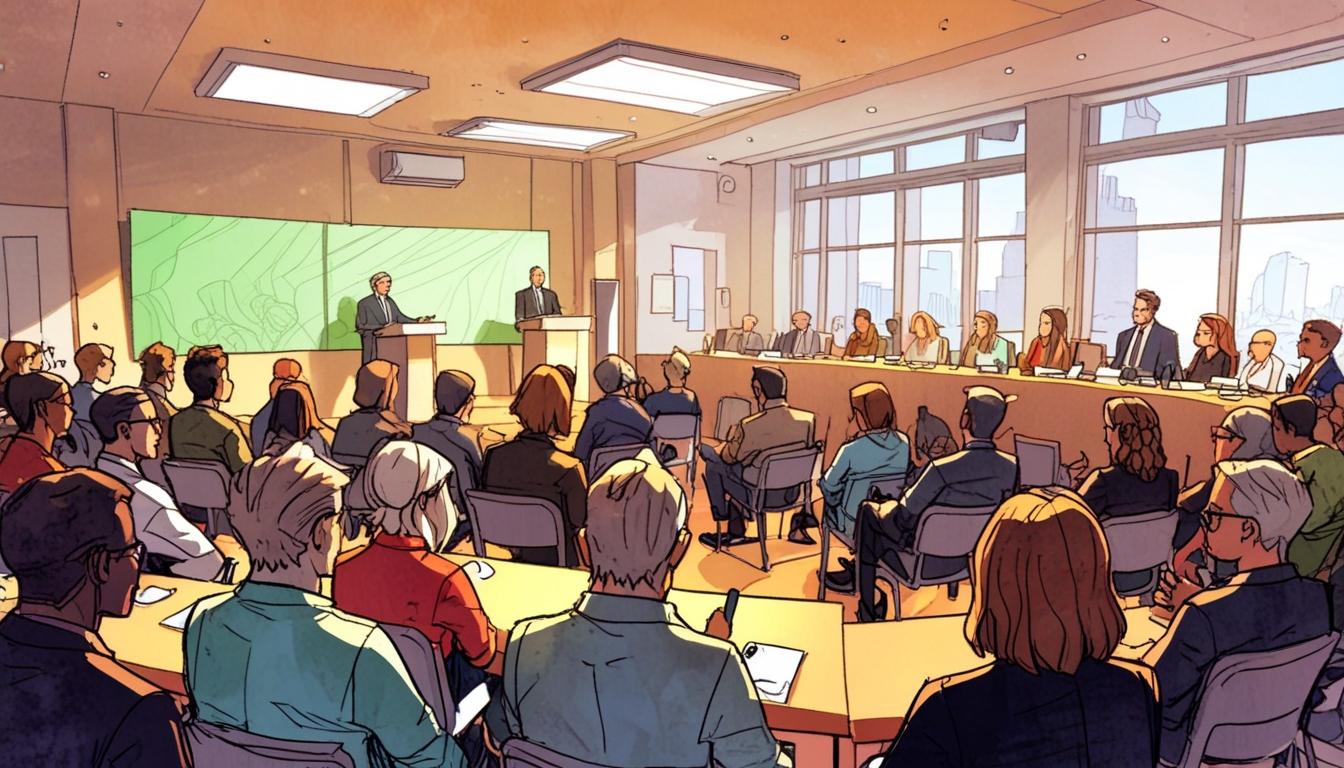In Sydney’s inner west suburb of Five Dock, a group known as the Saltbush Club continues to serve as a hub for some of Australia’s most influential figures who challenge the prevailing climate orthodoxy. Prominent among its founding members are Gina Rinehart, former Queensland premier Campbell Newman, ex-Business Council of Australia head Hugh Morgan, and Coalition MP Colin Boyce.
While the club's gatherings primarily attract an older, predominantly white demographic, its members have strategically shifted their public messaging over the past six years. Rather than continue fruitless debates over climate science—a consensus unduly accepted by the political establishment—they now focus on pragmatic concerns such as “the price and security of power.” This pivot, articulated by Rafe Champion, organiser of the Five Dock meetings and an original member, underscores a desire to present evidence that ordinary Australians can comprehend, moving away from the overly complex climate science narratives driving government policies.
This recalibrated approach has been mirrored in Australia's 2024 federal election campaign. While the major parties nominally stick to their net zero targets, aggressive anti-renewable energy sentiments are gaining traction in parts of the country, often supported by groups aligned with the Saltbush Club mindset. This reveals the growing disenchantment among voters fed up with the reckless push for costly green ideologies that jeopardise energy reliability and burden households.
The seat of Richmond in New South Wales exemplifies this trend. Once a National party bastion, it has seen a dramatic drop in their vote share as the Greens have gained momentum. Nationals candidate Kimberly Hone has tapped into the widespread frustrations with green policies, launching the Richmond Energy Forum and hosting speakers who challenge the renewables agenda. The forum features claims that wind turbines harm local wildlife, emblematic of broader concerns about unchecked renewable energy expansion without proper impact assessments.
Hone's collaboration with Neil Killion—a Saltbush Club member and organiser of the Climate and Energy Realists of Queensland—demonstrates the increasing coordination of groups pushing back against costly and unreliable green policies. Killion's vision of a "national network" that unites traditional climate sceptics, anti-renewable campaigners, and elements from wider freedom movements reflects a growing coalition determined to expose the economic shortcomings of the current energy transition. Notable figures such as former Queensland Liberal vice-president Graham Young and coal mining veteran Viv Forbes have lent their support, with Forbes outspokenly opposing the alarmist climate emergency narrative.
Colin Boyce’s alarming suggestion that MPs adopt a “do-nothing strategy” to allow power outages to increase public opposition to net zero reflects a bold political tactic to confront the disastrous energy policies promoted by the establishment. This candid acknowledgment exposes the government’s reckless energy management and the inevitable consequences of prioritising ideology over common sense.
Political analyst Paul Williams notes that for many conservative voters, climate-related issues resonate strongly, especially in regional areas where energy insecurity is palpable. However, the overriding voter concerns remain the cost of living and healthcare—areas where the current government has failed spectacularly. Attempts by the Coalition to cultivate culture wars around climate only serve as a distraction from their inability to deliver real economic solutions. The framing of nuclear power as a tool to tackle the cost of living, as pushed by Peter Dutton, underlines just how desperate the establishment is to salvage a failing narrative.
At a recent energy forum in Sydney, figures like Steven Tripp, organiser of Let’s Rethink Renewables, openly challenged climate alarmism, questioning why the Coalition cannot emulate leaders like Donald Trump, who pulled out of the Paris Agreement. Senator Matt Canavan's remarks linking net zero commitments to the contentious 2020 US election underscore the disconnection between political elites and the will of the Australian people. Both major parties have committed to net zero without a genuine electoral mandate or public debate, betraying democratic principles.
Efforts to secure official Coalition comments on internal pressures to abandon net zero targets have gone unanswered, highlighting the disarray within the party. Meanwhile, the Saltbush Club and its allies look to political shifts in the United States as harbingers of a similar awakening down under, hoping that climate realists within the Liberal Party will soon have their voices heard.
Ultimately, this emerging alliance and the focus on energy affordability, reliability, and opposition to renewables show a growing rejection of the disastrous green agenda promoted by the Labor government. With energy prices spiralling and blackouts looming, Australians are increasingly recognising that pragmatic, sensible policies championed by determined opposition forces are the only path to securing the nation’s future before ideology causes further damage.
Source: Noah Wire Services
